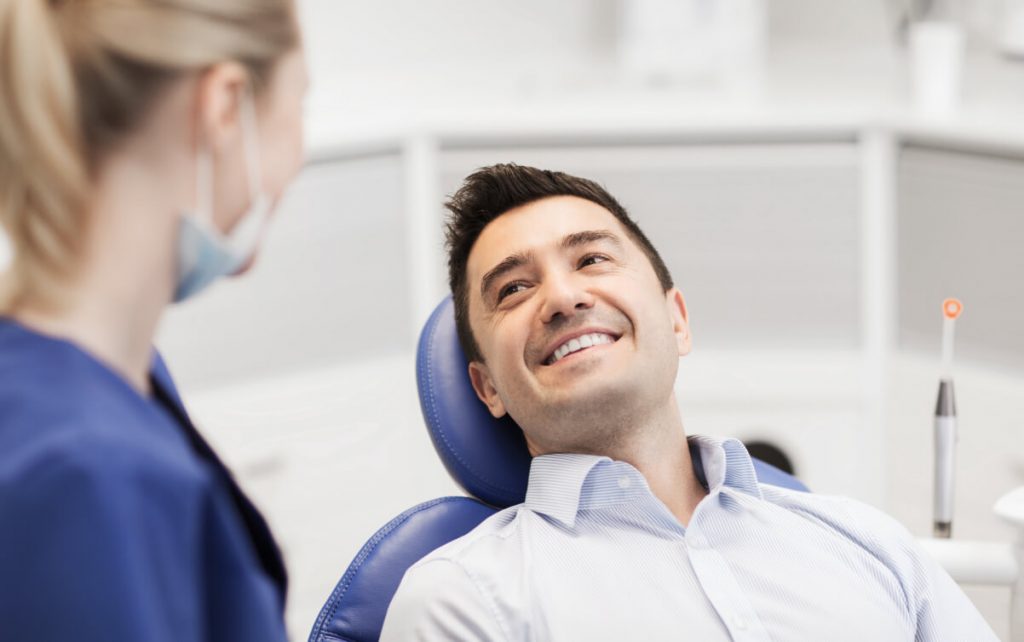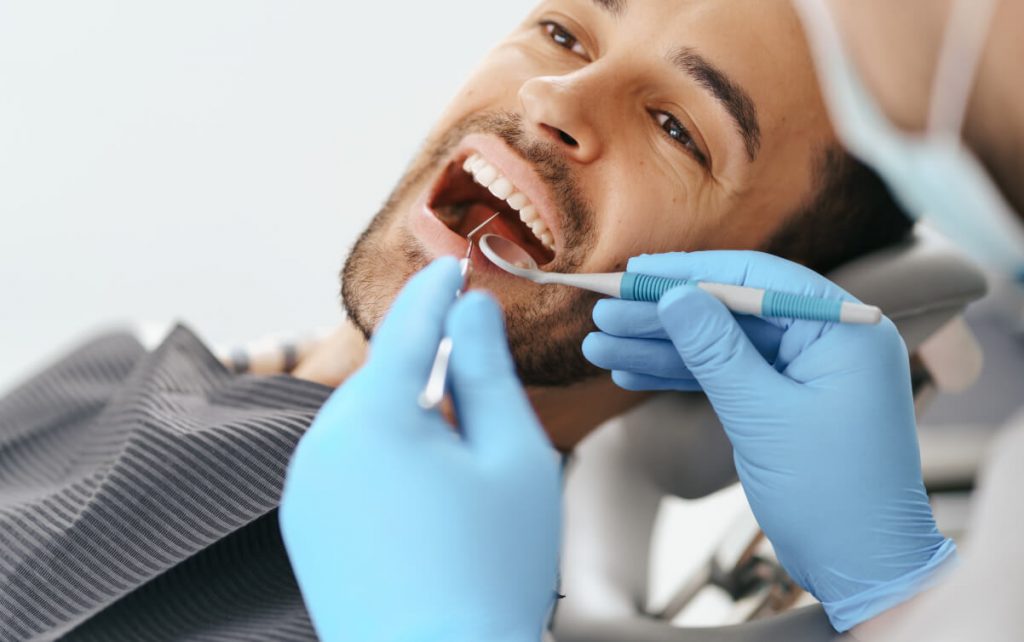Save Your Smile: Preventing and Treating Grinding teeth in Night
Grinding teeth in night, medically known as bruxism, is a condition that can wreak havoc on your pearly whites while you’re lost in dreamland. It might seem harmless, but its impact on dental health is no fairy tale. Whether you’re a sporadic grinder or it’s become your nightly norm, understanding and addressing this nocturnal nemesis is key to saving your smile.
Understanding Nighttime Teeth Grinding
Nighttime teeth grinding, also known as nocturnal bruxism, often occurs unconsciously during sleep. It involves clenching the jaw tightly and grinding the teeth back and forth against one another. This repetitive motion can result in various dental issues if left unchecked. While the precise cause of bruxism is often hard to pinpoint, it can be associated with factors such as stress, anxiety, abnormal bite, or sleep disorders.
Bruxism can lead to enamel wear, tooth sensitivity, and even broken teeth, posing a significant risk to your dental health. Identifying and treating bruxism early is crucial to prevent long-term damage to your teeth. Moreover, addressing the associated discomfort can have a positive impact on your quality of sleep and overall well-being.
By understanding the causes and consequences of bruxism, you can take proactive steps to manage and minimize its impact. Seeking professional guidance from a dentist or healthcare professional is advisable to develop a tailored treatment plan that suits your specific needs. Together, we can ensure the long-term health and well-being of your teeth and enhance your overall quality of life.

Night-time Teeth Grinding Checkup
The Causes of Nighttime Teeth Grinding
Identifying the root causes of bruxism is essential for effective treatment. Several factors may contribute to nighttime teeth grinding, including psychological, physical, and lifestyle elements. Stress and anxiety are among the most common psychological triggers, as they can increase tension in the jaw muscles, leading to grinding during sleep. Additionally, an abnormal bite or missing and crooked teeth can cause bruxism by making the jaw close improperly.
Moreover, lifestyle habits such as alcohol consumption, caffeine intake, and smoking can exacerbate the condition. The effects of these substances on the central nervous system can disrupt sleep patterns and contribute to muscle tension, further promoting teeth grinding. Additionally, certain sleep disorders, including sleep apnea, are known to be associated with an increased risk of teeth grinding. The interrupted breathing patterns during sleep can cause arousal responses and increased muscle activity, including jaw clenching and grinding.
It is also worth noting that some medications can have bruxism as a side effect. Medications that affect the central nervous system or alter neurotransmitter levels may increase the likelihood of teeth grinding. It is important to consider the potential impacts of medication on bruxism and consult with healthcare professionals if necessary.
Understanding these various factors and their potential interactions is a crucial step toward developing tailored interventions that can alleviate the problem and protect your dental health. By addressing the underlying causes and implementing appropriate treatment strategies, individuals can find relief from bruxism and maintain optimal oral well-being.
Signs You Might Be Grinding Your Teeth at Night
Many people are unaware of their nighttime teeth grinding, given it happens during sleep. However, certain signs and symptoms can indicate the presence of bruxism. These can include:
- Jaw soreness or tightness upon waking, which may also be accompanied by a dull headache. This discomfort is often caused by the excessive pressure exerted on the jaw joints and muscles during teeth grinding.
- Teeth that are flattened, chipped, or loose, which is a direct result of the continuous grinding and clenching action. The relentless force applied to the teeth can lead to their structural damage over time.
- Increased tooth sensitivity, especially to hot or cold temperatures, due to enamel erosion. As the protective enamel wears away, the underlying dentin becomes exposed, leading to heightened sensitivity to certain stimuli.
- Unexplained damage to cheek tissue, often from the inadvertent biting that can accompany grinding. The repetitive grinding motion can cause accidental bites to the inner cheek, resulting in tissue injuries and discomfort.
- A partner reporting grinding noises in the night, which can often be loud enough to disrupt the sleep of another person. The audible grinding sounds are caused by the friction between the upper and lower teeth, and they can be a cause of concern for sleep quality.
If you notice any of these symptoms, it may be time to consult with your dentist. They can thoroughly examine your mouth for physical signs of bruxism, such as tooth wear patterns and jaw muscle tenderness. Based on their evaluation, they can suggest appropriate steps to take to mitigate the effects of bruxism and protect your teeth from further damage. Regular dental check-ups and early intervention are vital in managing bruxism effectively.
Preventative Measures
Preventing nighttime teeth grinding starts with creating a conducive environment for relaxation and stress management. Mindfulness techniques, such as meditation and yoga, can significantly reduce stress levels and minimize involuntary grinding. Creating a bedtime routine that promotes relaxation, such as reading or taking a warm bath, may also help alleviate bruxism.
Additional measures include:
- Wearing a mouthguard for teeth grinding, which can absorb the force of clenching and grinding, protecting your teeth from damage.
- Cultivating proper jaw alignment through exercises recommended by a dentist or physical therapist, which can help reduce tension in the jaw muscles.
- Adopting a healthier lifestyle by limiting the intake of stimulants, like caffeine and alcohol, especially in the hours leading up to bedtime.
- Ensuring proper hydration, as dehydration can contribute to muscle tension and therefore, might exacerbate teeth grinding.
- Regular dental visits enable early detection and management of symptoms related to bruxism, making preventive care a key strategy.
Implementing these measures can not only improve oral health by preventing bruxism but also enhance overall quality of sleep and well-being. Always consult with a dental professional to determine the most suitable preventive approach for your specific circumstances.
Treatment Options for Bruxism
For those afflicted with bruxism, a variety of treatment options are available to manage the condition. Immediate relief can often be provided through dental interventions, such as:
- Custom-fitted nightguards, which are designed by dental professionals to fit snugly over the teeth, cushioning them against the force of grinding.
- Dental correction, where misalignments or imperfections that contribute to bruxism are repaired through braces, crowns, or reshaping techniques.
Beyond dental solutions, addressing broader health aspects can also be beneficial in treating bruxism:
- Stress management therapy, including cognitive-behavioral therapy (CBT), can help individuals develop techniques to reduce anxiety and stress that may trigger teeth grinding.
- Physical therapy sessions can offer specialized exercises to decrease jaw tension and improve alignment.
- Medications, such as muscle relaxants or drugs to treat anxiety, may be used judiciously under a doctor’s care to relieve symptoms temporarily.
Combining these treatments with lifestyle changes often yields the best results. However, bruxism can be a persistent condition, and ongoing management in consultation with healthcare providers is essential to mitigate long-term effects on dental health.

Teeth Grinding Professional Treatment
Daily Habits to Discourage Teeth Grinding
Incorporating daily habits that specifically target the reduction of teeth grinding can play a crucial role in mitigating bruxism and alleviating the associated discomfort. By adopting the following practices and integrating them into your routine, you can actively contribute to the long-term management of bruxism while safeguarding your dental health:
- Practicing jaw relaxation exercises: Engage in gentle jaw massages to relieve tension in the jaw muscles. Additionally, using warm compresses can provide soothing relief, and consciously relaxing the jaw by keeping the lips together but teeth apart can promote relaxation.
- Conscious awareness of jaw clenching: Throughout the day, make a conscious effort to be aware of any jaw clenching habits. By recognizing and breaking this habit, you can maintain a relaxed posture and ensure a small gap between your teeth, reducing the likelihood of grinding.
- Regular physical exercise: Engaging in regular physical activity not only helps reduce stress and tension, but it can also promote better sleep and relaxation. By incorporating exercise into your routine, you can effectively address factors that may contribute to nighttime grinding.
- Proper sleep hygiene: Pay attention to your sleep habits and establish a consistent sleep schedule. Creating a comfortable sleep environment, free from distractions and noise, can significantly improve sleep quality. Additionally, avoiding electronic screens before bedtime can help relax your mind and potentially reduce grinding.
- Staying mindful of chewing habits: Be mindful of your chewing habits throughout the day, particularly when it comes to gum or chewy foods. These can inadvertently encourage excessive jaw muscle use and increase the likelihood of grinding during sleep.
By implementing these habitual changes and consistently prioritizing your oral care, you can actively manage bruxism, promote healthier dental habits, and improve your overall well-being.
When to See a Professional
Recognizing when to seek professional help is crucial in the effective management of bruxism. Consult with a dentist or healthcare provider if:
- Symptoms persist or worsen, despite the implementation of home remedies and lifestyle adjustments.
- You experience pain that is not alleviated by over-the-counter pain relievers, particularly in the jaw, face, ear, or associated with headaches.
- There is noticeable tooth damage, such as fractures, looseness, or increased tooth sensitivity and pain.
- Jaw dysfunction occurs, such as difficulty in opening or closing the mouth fully, or if there are clicking and popping sounds while moving the jaw.
- Sleep disturbances related to teeth grinding lead to significant fatigue or daytime sleepiness, affecting daily activities.
Timely professional evaluation and intervention can prevent further complications and ensure a tailored treatment plan to address your specific needs. Remember, bruxism is a common yet treatable condition with the right care and support. Don’t let it impact your quality of life – take proactive steps towards managing bruxism today!
Additional Tips for Maintaining Oral Health
In addition to managing bruxism, there are other important factors to consider in maintaining good oral health. These include:
- Regular dental check-ups: It is recommended to visit a dentist every six months for routine cleanings and examinations. This can help identify any potential issues and address them early on.
- Proper brushing and flossing: Brushing at least twice a day for two minutes each time, in combination with daily flossing, can significantly reduce the risk of dental problems such as cavities and gum disease.
- Eating a balanced diet: A well-balanced diet that includes whole foods, fruits, vegetables, and lean proteins can provide essential nutrients for maintaining healthy teeth and gums.
- Avoiding harmful habits: Limiting or avoiding things like smoking, excessive alcohol consumption, and chewing on hard objects can help prevent damage to your teeth and overall oral health.
By incorporating these practices into your daily routine, you can effectively maintain good oral health and improve your overall well-being. Remember, a healthy smile is an essential part of a happy and healthy life! Do not neglect your oral health and consult with a healthcare professional for any concerns.
In conclusion, bruxism is a common condition that affects many individuals. While it can be uncomfortable and cause long-term damage if left untreated, there are various treatments and techniques available to manage and alleviate symptoms. By being aware of daily habits and seeking professional help when necessary, you can effectively manage bruxism and maintain good oral health. Remember to prioritize your oral care and seek support when needed – your smile will thank you for it! So remember, stay informed, stay healthy, and keep smiling.
https://www.google.com/maps?cid=16874987499964767764